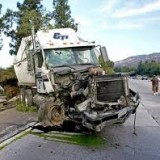What if I have an MVA while working?
I was working at the time of my collision. ICBC claims that the driver who was at fault was also working at the time and that I therefore have no claim against ICBC. Is ICBC right?
If the other driver was not a “worker” as defined by the Workers Compensation Act, you have may have to decide whether to make a WorkSafeBC claim or to claim damages against ICBC; however, ICBC may refuse to pay you disability benefits or fund your rehabilitation on the basis that you were a “worker. ”
If both you and the other driver are found to be “workers,” then you are not entitled to claim damages against ICBC. Your claim is against WorkSafeBC. The Workers’ Compensation Appeal Tribunal has exclusive jurisdiction to decide whether a person was, at the time of a motor vehicle collision, a worker and covered by WorkSafeBC.
I was working at the time of the collision and am entitled to apply for WorkSafeBC benefits. The other driver was not working. Am I entitled to receive ICBC rehabilitation and disability benefits and to claim damages from ICBC if I decide not to make a WorkSafeBC claim?
Your ICBC Accident Benefits policy gives ICBC a virtual “out” of paying you rehabilitation or disability benefits (Part 7 benefits) if you decide not to make a WorkSafeBC claim. If you do not make a WorkSafeBC claim, you have the right to make a claim for damages. You may have an extended health plan and/or a short and long term disability plan through your employer, or you may be entitled to Employee Insurance sickness benefits. If so, you may be able to manage without ICBC’s assistance until you finally resolve your claim for damages.
Some injured people feel financially pressured to make a WorkSafeBC claim, even though they do not want to deal with WorkSafeBC. Be sure to speak to a lawyer before accepting any money or funding of treatment from WorkSafeBC. You can then decide if it is in your best interests to continue with your WorkSafeBC claim or to pursue a claim for damages against ICBC, the third party liability insurer for the at-fault driver.
If you elect to pursue a WorkSafeBC claim and the other driver was not a “worker” at the time of the collision, WorkSafeBC’s legal department may “stand in your shoes” to pursue a claim for damages against ICBC to recover what it paid you, and more. When WorkSafeBC resolves this claim, you may receive some money—after WorkSafeBC pays itself first. In this case, WorkSafeBC would have all the decision-making power in its claim against ICBC and you would have no right to reject an offer from ICBC that WorkSafeBC wants to accept. WorkSafeBC would decide how much to pay itself from the award, taking into consideration monies it may pay you for future compensation.





